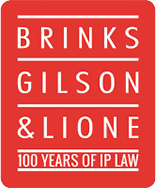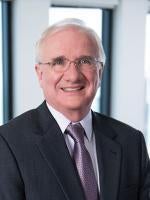On July 27, 2018, the Federal Circuit, sitting en banc, rejected the United States Patent and Trademark Office’s (“PTO’s”) argument that, following their successful defense of an examiner’s rejection in district court, the unsuccessful applicant is compelled to pay the PTO’s attorney fees. When the PTO’s Patent Trial and Appeal Board (“Board”) affirms an examiner’s rejection of a patent application, § 145 of the Patent Act permits the applicant to challenge the Board’s decision in district court. Applicants who invoke § 145 are required to pay “[a]ll the expenses of the proceedings” incurred by the PTO in defending the Board’s decision, regardless of the outcome. Historically, the PTO has relied on this provision to recover sums it spent on travel and printing and, more recently, expert witnesses. In Nantkwest, the issue before the court was whether §145 also compelled the applicant to pay attorney fees incurred by the PTO.
The patent application at issue involved a method for treating cancer using natural killer cells. In 2010, a PTO examiner rejected the application as obvious and the Board affirmed the rejection in 2013. Pursuant to § 145, NantKwest challenged the Board’s decision in the U.S. District Court for the Eastern District of Virginia. Here, the PTO successfully moved for summary judgment that the application’s claims were obvious. The PTO then filed a motion for reimbursement of the expenses of the proceedings under § 145, including their attorney fees.
The district court denied the PTO’s motion with respect to attorney fees, citing the “American Rule”, i.e. that each litigant bears its own attorney fees absent clear contrary instruction from Congress. The PTO appealed and a divided panel of the Federal Circuit reversed the district court’s judgment. Later, the court voted sua sponte to hear the appeal en banc and vacated the panel’s judgment. The court requested briefing on a single question: whether the panel correctly determined that § 145’s “all the expenses of the proceedings’ provision” authorizes an award of the PTO’s attorney fees.
The court first held that the American Rule applies to § 145. In doing so, the court rejected the PTO’s argument that § 145 is not a fee-shifting statute that falls within the American Rule’s ambit. The PTO had relied on the Fourth Circuit’s opinion in Shammas v. Focarino, 784 F.3d 219 (4th Cir. 2015), for the proposition that the American Rule only governs the interpretation of statutes that shift fees from a prevailing party to a losing party. The Shammas case involved a provision from the Lanham Act that is “nearly identical” to § 145 of the Patent Act. Because § 145 imposes “[a]ll the expenses” on the applicant, win or lose, the PTO asserted it is not a fee-shifting statute that falls within the American Rule’s ambit. The court considered the Fourth Circuit’s view that the American Rule does not apply to statutes lacking a success requirement to be misplaced.
The court went on to hold that § 145’s recitation that “[a]ll the expenses of the proceedings shall be paid by the applicant” lacks the “specific and explicit” congressional authorization required to displace the American Rule. The “specific and explicit” requirement demands “more than language that merely can be and is sometimes used broadly to implicitly cover attorneys’ fees.” (emphasis in original) The court reviewed other statutory provisions enacted by Congress and concluded that these demonstrated that ordinarily, a statutory right to expenses does not include an implicit authorization to award attorneys’ fees.
Chief Judge Prost authored a lengthy dissent, in which three of her colleagues joined. The dissent argued that when Congress said, “[a]ll the expenses,” they meant all the expenses. The dissent noted that the PTO did not retain outside counsel to assist in defending this § 145 action. Instead, it used its salaried government lawyers. These lawyers incurred expenses because the time they devoted to this case was not available for other work.
The dissent considered that the language of § 145 evinces Congress’s “specific and explicit” intent to depart from the American Rule and to impose upon the applicant payment of all the expenses of the proceedings, including the PTO’s personnel expenses.
For the present, applicants who invoke § 145 are not required to pay the PTO’s attorney fees. However, as noted by the dissent, the majority opinion has created a circuit split with the Fourth Circuit’s position in Shammas. This, together with the strong dissent in the present case, raises the possibility that the Supreme Court may have the final say as to this issue.





 />i
/>i

